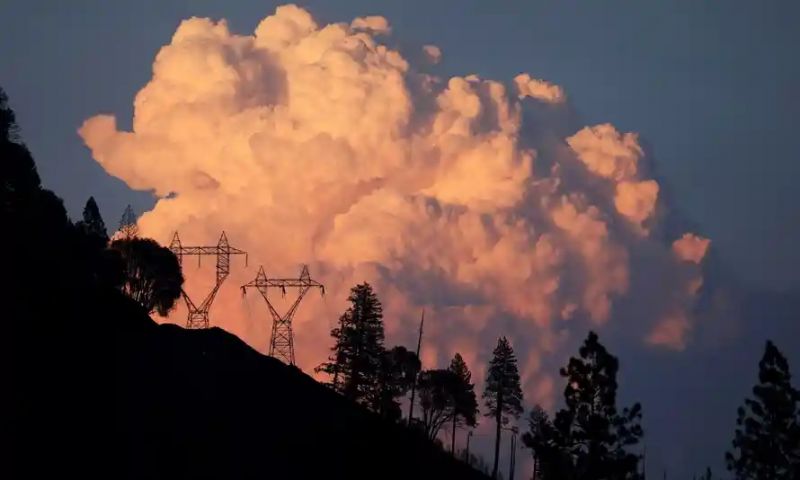
“Babe, look!” my wife said excitedly, as we sprawled on the grass reading on one baking hot afternoon. She passed me her book: “Read this – this person is just like you!” I read the paragraph she was pointing to. A clearly distraught character was fulminating about poorly designed roundabouts; she kept going on and on and on about them. To be clear, I don’t have any opinions about roundabouts. Not a single one. I curtly informed my wife of this. “Yeah”, she said. “But you do have, you know, certain rants you keep coming back to. Like, incessantly”.
I couldn’t argue. While I have always been a committed pessimist, recently I’ve gone into full-blown Chicken Little mode with existential obsessions. I’ll wake up, look at the latest terrifying news on my phone and immediately launch a diatribe about how we are almost certainly going to experience climate emergency-induced societal collapse in our lifetimes. “Have you seen what’s happening in Greece/northern California/Turkey?” I’ll screech. “Have you seen how many billionaires are fleeing to New Zealand to avoid the imminent apocalypse? The weather is out of control! Joe Biden and his woefully inadequate infrastructure bill aren’t going to fix anything! We are all doomed! DOOMED!”
Granted, this may be a lot for my wife – or anyone – to deal with before a morning cup of coffee. But a state of constant anxiety about the environment is hardly unreasonable, is it? I mean, when Greta Thunberg gets irate she gets nominated for a Nobel peace prize. But when I do, it’s problematic? The world is in dire straits – as Monday’s IPCC report made extremely clear – so if you’re not feeling anxious then you’re not paying attention. And, if the rising rates of eco-anxiety are anything to go by, a lot of us are paying attention: a survey released by the American Psychological Association last year found that 68% of the adults contacted had “at least a little eco-anxiety” about climate crisis and its effects.
And now my eco-anxiety has been exacerbated by parental guilt. I have a three-month-old baby who I love to bits. Sometimes, however, I’ll wake up in the middle of the night and intensely regret having her. That’s not because she has woken me up with banshee-like squeals for the 17th time that night (although she definitely has) or because sleep deprivation has caused me to age 30 years in three months (although it definitely has) – it’s because I feel horribly guilty for bringing my daughter into a world that seems to be on the verge of collapse. Why did we do this? I’ll think. And then I’ll remind myself that while choosing to have a child may have been selfish in many ways, it was also an act of optimism. I thought a lot about the climate crisis when deciding whether or not to have a kid. And my conclusion was that if I was going to spend so much time and money on becoming a parent – if I was going to shoulder the responsibility of bringing new life into the world – I was going to have to find reasons to be optimistic. Otherwise how could I live with myself? How could I look my daughter in the eye?
Antonio Gramsci said that we need the pessimism of the intellect and optimism of the will. Those, I think, are words to live by. We must not delude ourselves about the immense challenges the world faces, but we can’t let anxiety overwhelm and paralyse us. The world isn’t doomed quite yet – there is still a window of opportunity to change things. Particularly as, some well-respected climate scientists point out, we have the technology to save the world. We don’t need to wait for a miracle; we just need the will.
Arwa Mahdawi is a Guardian columnist.
